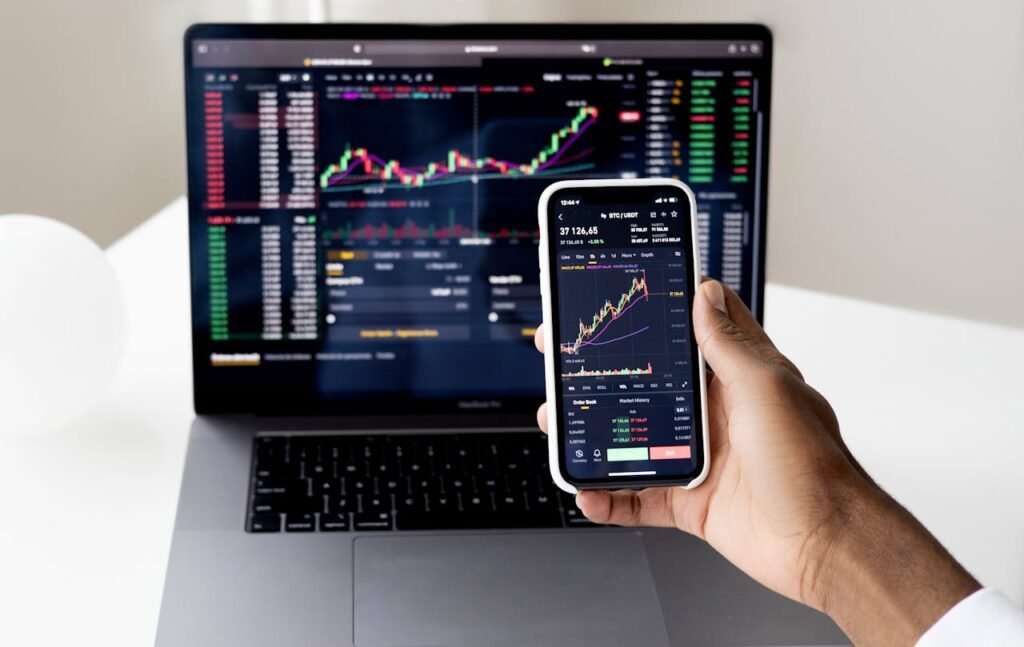The global economy is constantly evolving, and 2025 is no exception. This year, several key factors are driving changes across industries, influencing businesses, investments, and consumer behavior. From technological advancements to shifts in trade policies, the landscape is adapting to new challenges and opportunities. Understanding these market trends can help businesses and investors make informed decisions in an ever-changing financial environment.
The Rise of AI and Automation
Artificial intelligence and automation continue to reshape industries, improving efficiency while raising concerns about job displacement. Businesses are increasingly integrating AI-driven solutions to enhance productivity, customer service, and data analysis. In sectors like finance, healthcare, and manufacturing, automation is streamlining operations and reducing costs. Companies investing in AI-powered tools are gaining a competitive edge by optimizing workflows and predicting market trends with greater accuracy.
Sustainable and Green Investments
Environmental concerns and regulatory policies are pushing businesses toward sustainability. Consumers are more conscious of eco-friendly products, and governments are implementing stricter regulations on carbon emissions and waste management. Green investments, including renewable energy, electric vehicles, and sustainable construction, are becoming a priority for investors. Companies that adopt sustainable practices are not only benefiting from government incentives but are also attracting environmentally aware customers.
Digital Currencies and Blockchain Expansion
Cryptocurrencies and blockchain technology continue to gain mainstream acceptance. Governments and financial institutions are exploring digital currencies, with several nations launching or testing their own central bank digital currencies (CBDCs). Businesses are integrating blockchain for secure transactions, supply chain management, and data protection. While volatility remains a concern, the increasing adoption of blockchain solutions is revolutionizing finance and commerce.
Shifts in Global Trade Policies
Geopolitical tensions and trade agreements are shaping global commerce. Countries are focusing on strengthening domestic manufacturing and reducing reliance on imports. Supply chain diversification has become a major trend as businesses seek alternatives to avoid disruptions caused by trade restrictions or economic instability. Companies that adapt to these shifts by expanding into new markets and securing reliable supply chains are positioning themselves for long-term success.
The Evolution of Remote Work
The way people work continues to change, with hybrid and remote work models becoming the norm. Businesses are investing in digital infrastructure to support virtual collaboration, while employees are prioritizing flexibility and work-life balance. This shift is affecting real estate markets, with demand for commercial office spaces declining in some regions while residential and co-working spaces are on the rise. Companies that embrace flexible work environments are improving employee satisfaction and productivity.
Consumer Behavior and E-commerce Growth
E-commerce is expanding as consumers favor convenience and digital shopping experiences. Social commerce, where people shop directly through social media platforms, is gaining traction. Businesses are focusing on personalization, using data-driven strategies to enhance customer experience. The demand for fast and efficient delivery services is also increasing, leading to innovations in logistics and supply chain management. Companies that adapt to changing consumer preferences by offering seamless online shopping experiences are thriving in this evolving market.
The Role of Interest Rates and Inflation
Monetary policies are playing a crucial role in economic stability. Central banks are carefully adjusting interest rates to manage inflation and economic growth. While inflation remains a challenge, policymakers are focusing on maintaining a balance between controlling price hikes and encouraging investment. Consumers and businesses alike are monitoring these economic indicators closely, as they impact borrowing costs, purchasing power, and overall market confidence.
The Future of Healthcare and Biotech Innovations
Advancements in biotechnology and healthcare are transforming the industry. Breakthroughs in medical research, personalized treatments, and digital health solutions are improving patient care. Telemedicine and wearable health devices are becoming more common, allowing individuals to monitor their health in real time. The pharmaceutical industry is also seeing rapid innovation, with new drug development and precision medicine paving the way for better healthcare outcomes.
Final Words
The economy in 2025 is being shaped by a combination of technology, sustainability, policy changes, and evolving consumer behaviors. Businesses that stay ahead of these trends and adapt to shifting market dynamics will have a greater chance of success. From AI-driven automation to green investments and digital commerce, the landscape is evolving rapidly, offering both challenges and opportunities for investors and companies alike. Understanding these factors is key to making strategic decisions and navigating the ever-changing global economy.

